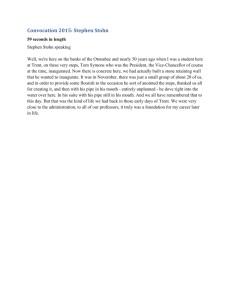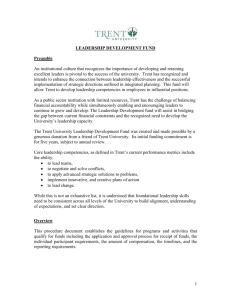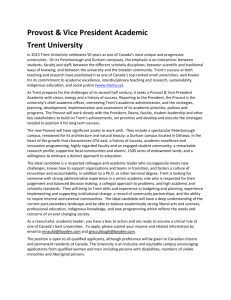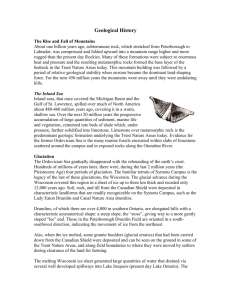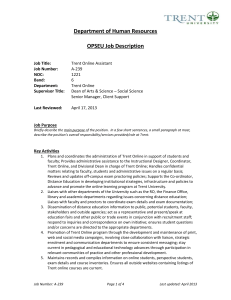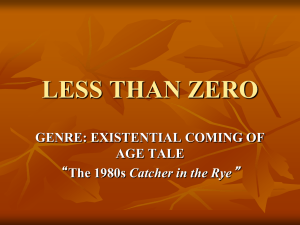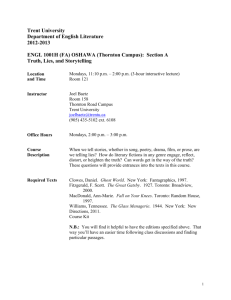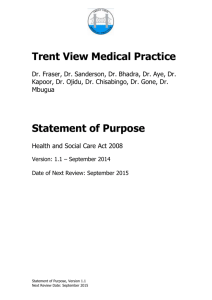video transcript
advertisement
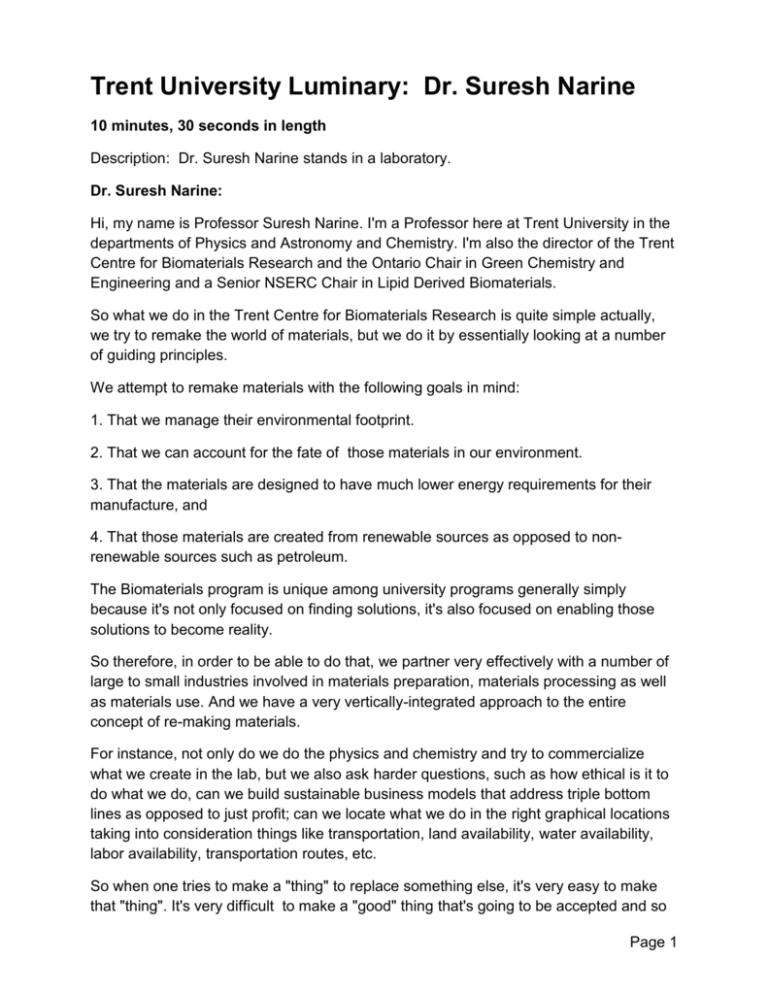
Trent University Luminary: Dr. Suresh Narine 10 minutes, 30 seconds in length Description: Dr. Suresh Narine stands in a laboratory. Dr. Suresh Narine: Hi, my name is Professor Suresh Narine. I'm a Professor here at Trent University in the departments of Physics and Astronomy and Chemistry. I'm also the director of the Trent Centre for Biomaterials Research and the Ontario Chair in Green Chemistry and Engineering and a Senior NSERC Chair in Lipid Derived Biomaterials. So what we do in the Trent Centre for Biomaterials Research is quite simple actually, we try to remake the world of materials, but we do it by essentially looking at a number of guiding principles. We attempt to remake materials with the following goals in mind: 1. That we manage their environmental footprint. 2. That we can account for the fate of those materials in our environment. 3. That the materials are designed to have much lower energy requirements for their manufacture, and 4. That those materials are created from renewable sources as opposed to nonrenewable sources such as petroleum. The Biomaterials program is unique among university programs generally simply because it's not only focused on finding solutions, it's also focused on enabling those solutions to become reality. So therefore, in order to be able to do that, we partner very effectively with a number of large to small industries involved in materials preparation, materials processing as well as materials use. And we have a very vertically-integrated approach to the entire concept of re-making materials. For instance, not only do we do the physics and chemistry and try to commercialize what we create in the lab, but we also ask harder questions, such as how ethical is it to do what we do, can we build sustainable business models that address triple bottom lines as opposed to just profit; can we locate what we do in the right graphical locations taking into consideration things like transportation, land availability, water availability, labor availability, transportation routes, etc. So when one tries to make a "thing" to replace something else, it's very easy to make that "thing". It's very difficult to make a "good" thing that's going to be accepted and so Page 1 that is why we operate on so many different levels within this part of trying to remake materials in a responsible fashion, both from a resource basis as well as from an enduse basis, as well as from an environmental basis. One must look at the way we have come into a materials age; we truly live within an age where materials make our lives very, very simple. Plastics for example are ubiquitous in our environment, in our everyday lives. It's very difficult to imagine a world where we don't utilize plastic, however, much of the plastics that we utilize today were not created by design, they were created as opportunity. The opportunity stemmed from a few very important discoveries that one could make plastics dating back to the 1930's, but also from the opportunity that there was an easily available feedstock: petrochemicals. Having recognized the value that we place in these materials, there's a wonderful opportunity to remake our world where we now address issues of the environment, of sustainability, of economic sustainability, as well as feedstock sustainability. So it is approaching the design of our world's materials from a perspective that works for sustainability for us, as opposed to simply adopting technology that works, but has some severely deleterious effects to our planet. And this is -- this is an endeavour of course which one can imagine expands to not just materials, but fuels, to the way we actually adopt technology. So it's -- it's in keeping with an entire movement I think, that we do things smarter with more care for our planet and with an emphasis on continuing to enjoy the kinds of lives and cultures that we do now without destroying everything around us. Our decision to come to Trent was not just based in logic but it's based in a love story. Trent University for me is simply a definition of what academic endeavor should be. It's first of all set within a natural environment of such immense beauty and appeal that working here is a joy. But Trent also defines for me an environment, a place, a philosophy that allows endeavors such as ours to flourish, in that it places an emphasis on the unique value that is created through cross-disciplinary discourse, true open-minded approaches to multi-faceted approaches to problems. And so in many ways our research cuts across many of the traditional boundaries and setting it at a place like Trent really is setting it in its perfect environment. In addition to that, Trent attracts students that embrace a multicultural, multi-disciplinary, cross-disciplinary approach and so it is a perfect place for us because we find the right kinds of students at Trent. Page 2 Of course, it's no small measure we came to Trent also because of my grounding here, I see Trent as my academic "parent" so to speak and without being too coy, the idea, the paradigm, the philosophy that is espoused at this institution, I truly believe deserves to be propagated. It's one of the reasons that I left a very large school to come here because if at all I'm embracing a career that has as its fulcrum the creation and enablement and mentorship of young minds, I would much prefer that those minds are developed and nurtured in this environment than any other, because of its values. Undergraduate students are increasingly becoming a major part of our research endeavor here. And this is something that is quite unique at Trent. Not only have we been able to allow undergrads for Trent to have opportunities to indulge - and I use the word indulge quite deliberately - in research of a cutting-edge nature, but increasingly we're seeing students from Waterloo, from University of Western and farther afield, like Brazil and India, coming to spend stints in our laboratory because we believe that capturing the imagination of students at the undergraduate level is very, very important to enabling that future cadre of world-class scientists from around the globe, who are going to be necessary for our world to continue in the trajectory that we're trying to set now. And so capturing that imagination of those students in their second, third and fourth undergraduate year is a very deliberate but very important aspect of how we do research at the TCBR. Trent University is one of those places that is important to know about even if you don't intend to become a student, or a faculty, or a staff, simply because the experiment that was Trent fifty years ago has become such a very useful approach to the world. It is a university rooted in deep community roots but also rooted in the vision that graduate and undergraduate education are things -- are endeavors -- that cannot be conducted in vacuums, insofar as so many other places will approach the study of Physics purely from only a study of Physics. Trent breaks down those barriers and says that the Physicist must also understand the philosophy, that the physicist must also be conversant with the environmentalist, that the physicist must also be aware of current affairs and geopolitical movements. And so the value that Trent brings to the table is that have been exposed to a myriad of opportunities, ideas and various types of exposures which defines the kinds of -- for example, social activism -- that you see at Trent. At Trent we nurture and encourage scientific, social, and thought activism, because it's a very important part, we think, of becoming better citizens of the world. Page 3
